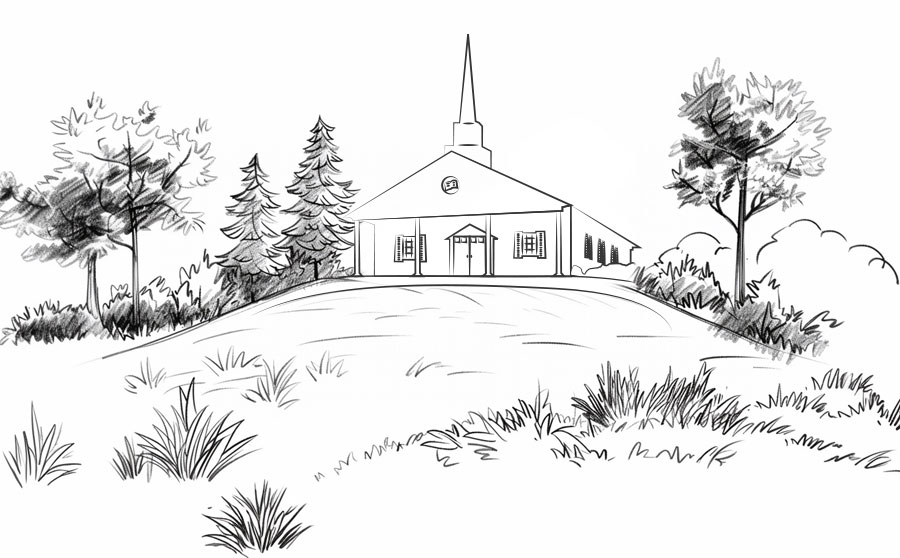
About Immanuel Chapel in Upton MA
Immanuel Chapel is a Bible-believing church located in Upton, Massachusetts, established in 1975, and associated with a larger denomination known as the Orthodox Presbyterian Church (OPC). To learn more about the history of our denomination, click here: https://opc.org/historian.html
Our leadership subscribes to the Westminster Confession of Faith, along with the Larger and Shorter Westminster Catechisms.
Our members and attenders come from a variety of backgrounds and careers. We are a mixture of singles, married couples, and widowed believers. There are young families with children and more senior saints. Most members live within 30 minutes of the church, but some come from a bit further away.
As a body of believers, we are committed to serving the Lord through prayerful obedience and fellowship. We believe in the importance of biblical worship, preaching, teaching, serving, and the spreading of the good news of the gospel of Jesus Christ.
We believe in salvation by grace alone, through faith alone, in Christ alone. We love visitors! We invite those with questions about faith and life to come and ask them. And we warmly welcome those who love God and love his word to join us in worship and fellowship.
Both our morning and evening worship services are live-streamed and can be accessed from the following link: livestream.
Church Background
Immanuel Chapel was founded as a congregational church, out of a desire to see the Gospel proclaimed in Upton. We joined the Orthodox Presbyterian Church (OPC) denomination on October 16, 2009. The name Immanuel means “God with us” from Matthew 1:23.
Our purpose is to stand on the Word of God alone which was “once delivered to the saints.” We hold to the ‘Reformed Faith’ which has been the historic faith rediscovered during the Reformation under Machen, Warfield, Hodge, Kuyper, Knox and Calvin and following in the footsteps of the Apostle Paul and our dear Savior, Jesus Christ. The Reformed faith is not an addition to Christianity; it is Christianity in its most glorious and consistent form.
The Reformed faith can be described as an unshakable confidence in the Scriptures Alone (Sola Scriptura); which present the Gospel by Grace Alone (Sola Gratia) through Christ Alone (Solo Christo), Who must be received by Faith Alone (Solo Fide). The purpose of life is to enjoy the presence of God (Coram Deo) to the glory of God alone (Soli Deo Gloria), which is the will of God (Deo Volente).
Our Church Governance
The word “presbyterian” simply means “elder” or “elder-led.” When we say we are a “presbyterian” church, we simply mean that the government of the local church is committed to elders who have been elected by the local congregation to serve the spiritual needs of the body.
The Bible uses several words to explain the nature of the work of the elder, including words like “shepherding” and “overseeing.” In the OPC we make a distinction between the “teaching elder”, otherwise known as the pastor, and the “ruling elders” who come alongside the pastor and assist in teaching and ruling. Fundamental to Presbyterianism is the Biblical idea that there should be a plurality of servant-leaders in the local church who are responsible for maintaining its peace and purity.
We also believe that local expressions of the church are intended to be connected to one another regionally and nationally. Immanuel Chapel currently belongs to the OPC Presbytery of New York and New England, which meets twice yearly, or more often as necessary. A General Assembly of elders from all across our denomination meet annually. To learn more about Presbyterianism and our denomination, read the About page at opc.org.
Deacons are also elected by the local congregation to care for the material needs of the members, provide good stewardship of the financial resources, and encourage works of mercy and service in the church.
The OPC
Orthodox Presbyterian Church
In 1788, when the Presbyterian Church in the United States was formed it adopted (with minor revisions) the Westminster Confession of Faith, Larger and Shorter Catechisms (1647), as its secondary standards (the Bible itself being the only infallible rule of faith and practice). Today, Officers in the Orthodox Presbyterian Church take a vow to adopt these confessional documents “as containing the system of doctrine taught in the Holy Scriptures.”
SOURCE: opc.org
